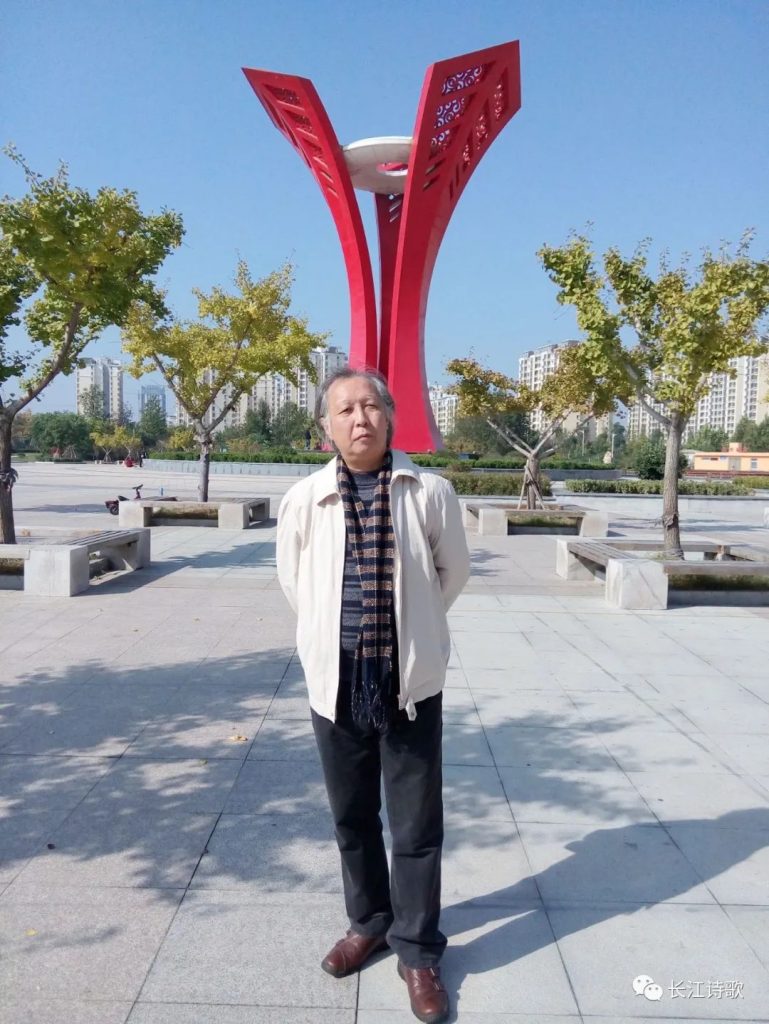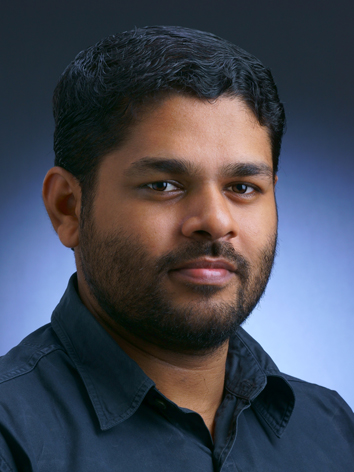
Five Poems
By Chinese Poet Yuan Hongri
Translated by Manu Mangattu
The City of Stars
White and blue night.
A Crystal smile.
Black is a pawn
Devoured by red lips of lightning.
There appears a song in the sky
It sprinkles down with rain and dew
There is a colossal ship in the sky
Twinkling like the City of the Stars.
星辰之城
白色与蓝色的夜
水晶的笑容
黑夜是一枚棋子
被闪电的红唇吃掉
天上传来了歌声
洒下金色的雨露
天际一艘巨轮
闪烁如星辰之城
The Soul Tripod
More splendorous than the whole world
Is veiled in my chest, the gilded key to heaven.
The blue ocean and the silver kingdom in my head do dwell
As the different flowers, the same beauty garnishes them all.
A simple civilization where everyone is a giant
Each stone for them is a gem or gold
Neither darkness nor death could ruin their words
Hence a tripod of the soul they fashioned
To conceive the making of the sun and the time of the soul.
灵魂之鼎
天堂的黄金钥匙藏在我的胸膛
比整个世界更加宏伟真实
而我的头颅里有甜蜜的蓝海洋白银的王国
每一个人都同样美尽管如不同的花朵
那是一个简单的文明个个都是巨人
他们把每一块石头都称作宝石或黄金
甚至在他们的词语里没有黑夜与死亡
于是他们制造了一种生产太阳与时光的灵魂之鼎
Bright Star – Sweet Song
I do know that heaven is in my frame, in my front
Yet I still covet the covert far-off kingdom of aliens
Longing forever to hear the soulful song of the stone.
My footsteps, when I tread on the earth
Shall accompany the throb of the years
Every leaf is a word
Every flower is a poem
Every big tree has an old soul
And all could hear the sweet song of the stars.
星空璀璨的甜蜜之歌
我知道天堂在我体内或者眼前
可我依然想看到遥远外星的神秘之国
我甚至想听到石头的灵魂之曲
当我在大地上行走
脚步会伴奏着岁月的脉搏
每一片树叶都是一个词语
每一朵花都是一首诗
每一棵大树有古老的灵魂
他们听得懂星空璀璨的甜蜜之歌
The Smiling King
Two moons once chirped in my window –
A blue moon and a red moon.
They enticed a large number of stars
The legion of angels from the Kingdom of Heaven.
My palace then appeared in the clouds
A huge transparent palace in diamond
The king that smiled to me thence was none
But myself, whom I had long forgotten.
含笑的王者
两只月亮在窗外鸣叫
一只蓝月亮 一只红月亮
它们引来了众多的星星
这是一群天国的使者
我的王宫在云端出现
金色透明 巨大的钻石之宫
那个向我含笑的王者
是我久已遗忘的自己
The City of the Soul
Those ancient timeworn words I love –
The Stone of the erstwhile dated soul.
More than the crown or the jewels
They make my days bright and charming.
With the light that I have
I put them to smelt in Jinding
So that I have countless stars
To plait my City of the Soul.
灵魂之城
我爱那些古老的词语
那些古老的灵魂之石
胜过了王冠上的宝石明珠
让我的日子明亮迷人
我用金鼎把它们熔炼
用属于我的日月之光
于是我拥有了无数颗星辰
编织一座座灵魂之城
Bio:Yuan Hongri (born 1962) is a renowned Chinese mystic, poet, and philosopher. His work has been published in the UK, USA, India, New Zealand, Canada, and Nigeria; his poems have appeared in Poet’s Espresso Review, Orbis, Tipton Poetry Journal, Harbinger Asylum, The Stray Branch, Acumen, Pinyon Review, Taj Mahal Review, Madswirl, Shot Glass Journal, Amethyst Review, Fine Lines, and other e-zines, anthologies, and journals. His best known works are “Platinum City”and “Golden Giant”. His works explore themes of prehistoric and future civilization.
About the Translator

Manu Mangattu is an English Professor, poet, editor, director and rank-holder. He has published 7 books, 73 research articles and 36 conference papers apart from 14 edited volumes with ISBN. He serves as chief editor/editor for various international journals. He has done UGC funded projects and a SWAYAM-MOOC course (Rs 15 lakhs). Besides translations from Chinese and Sanskrit, he writes poetry in English as well as in Indian languages. He was named “Comrade to Poetry China” in 2016. A visiting faculty at various universities and a quintessential bohemian-vagabond, he conducts poetry readings, workshops and lectures when inspired. After an apprenticeship in Shakespeare under Dr Stephen Greenblatt, he currently guides 23 research scholars and mentors NET English aspirants.

Wonderful poems!